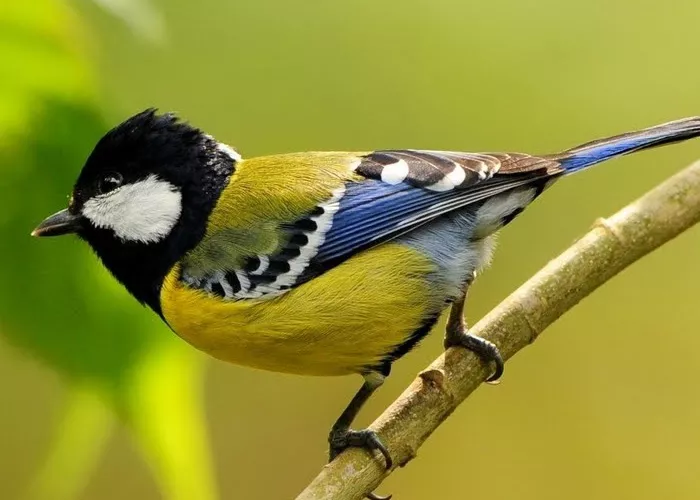Welcome to Poem of the Day – A Little Bird by Alexander Sergeyevich Pushkin.
A Little Bird written by Alexander Sergeyevich Pushkin, is a captivating poem that explores themes of love, longing, and the delicate beauty of nature. Known for his mastery of Russian literature, Pushkin often delves into the complexities of human emotion, and this poem is no exception. Through the metaphor of a small bird, Pushkin effectively conveys feelings of yearning and the fleeting nature of life, love, and happiness.
A Little Bird Poem
In alien lands I keep the body
Of ancient native rites and things:
I gladly free a little birdie
At celebration of the spring.
I’m now free for consolation,
And thankful to almighty Lord:
At least, to one of his creations
I’ve given freedom in this world!
A Little Bird Poem Explanation
The poem “A Little Bird” is succinct, but it carries profound emotional weight. It is a lyric poem, in which the speaker addresses the image of a bird—often considered a symbol of freedom and the transient nature of life. The poem can be interpreted as a reflection on the speaker’s own feelings of love or desire, as well as the inevitable passage of time.
Pushkin’s use of natural imagery is one of the key elements that elevate the emotional depth of the poem. In the tradition of Romanticism, nature plays an important role as both a setting and a metaphor for human emotions, and Pushkin uses the little bird to personify these themes.
Symbolism of the Little Bird
The little bird in Pushkin’s poem represents the fragility and ephemerality of life. Birds are often seen as creatures that are free to roam, yet they are also vulnerable to the elements. In this sense, the bird can be seen as a symbol of the speaker’s own vulnerability—particularly in matters of the heart. The image of the bird flying freely also suggests a yearning for freedom or escape, perhaps from the constraints of society or even the limitations of love.
Throughout the poem, the bird becomes a figure of longing. It is a creature of beauty, yet its flight is brief, just as the speaker’s desires are fleeting. The bird’s flight may symbolize the speaker’s own experience of love—one that is full of hope and anticipation but may ultimately be elusive or short-lived. This aligns with Pushkin’s recurring exploration of unattainable desires and the melancholic understanding that happiness can be fragile and fleeting.
The Theme of Longing and Desire
One of the central themes in “A Little Bird” is the idea of longing. The speaker’s yearning for the bird suggests an inner desire that remains unfulfilled. The bird, like love or happiness, is distant, and though the speaker is captivated by its beauty, it cannot be possessed. This yearning is a common motif in Pushkin’s poetry, and in this piece, it evokes both the sweetness of desire and the pain of unattainable love.
The bird may also serve as a metaphor for a lost opportunity or a passing moment. In many of Pushkin’s works, there is a recurring theme of regret and reflection on what could have been. The fleeting nature of the bird’s existence mirrors how quickly time passes, making the moments of joy or connection seem all the more precious. However, just as the bird flies away, so too does the speaker’s happiness seem distant and unreachable.
Tone and Emotional Atmosphere
The tone of “A Little Bird” can be described as melancholic yet tender. There is an underlying sense of wistfulness in the speaker’s reflection on the bird’s beauty and freedom. The speaker admires the bird from afar but is unable to share in its flight. This emotional distance intensifies the sense of longing and reinforces the theme of unattainable desires.
The simplicity of the language contributes to the emotional power of the poem. Pushkin uses straightforward language to express complex emotions, and this simplicity allows the reader to connect deeply with the universal themes of love, loss, and yearning. The imagery of the bird, along with the soft cadence of the poem, creates an atmosphere of quiet contemplation and introspection.
Conclusion
“A Little Bird” by Alexander Sergeyevich Pushkin is a profound meditation on the fleeting nature of life, love, and longing. Through the symbol of the bird, Pushkin evokes emotions of vulnerability, desire, and loss, themes that resonate universally. The bird’s flight represents the transient nature of beauty and happiness, while the speaker’s yearning highlights the human experience of longing for something just out of reach.
Pushkin’s use of simple yet evocative imagery allows him to explore complex emotional landscapes in a concise and powerful way. Ultimately, “A Little Bird” invites readers to reflect on the ephemeral nature of their own desires and the inevitability of time passing, making it a timeless piece of poetry that continues to speak to the human condition.

